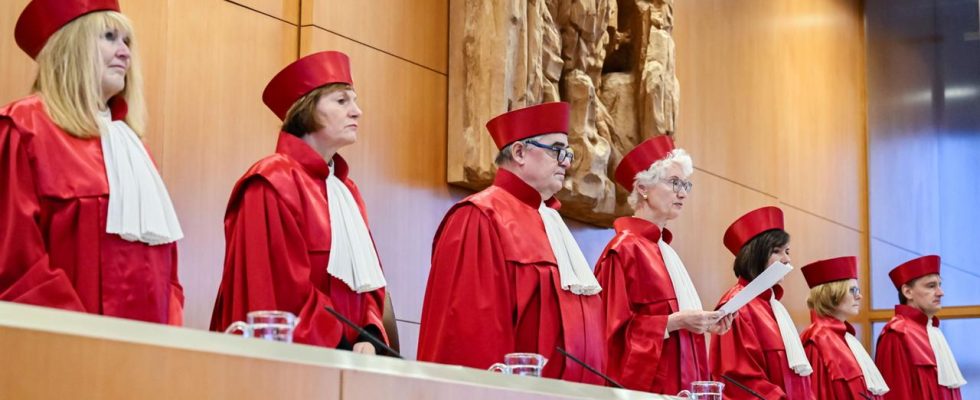The 2020 electoral law reform stands up to constitutional concerns. The judges did not accept the accusation that it was too complicated. However, some of them expressed concerns.
Basically it’s simple: elections are the basis of democracy. But voting rights in Germany are complicated. In addition, the Bundestag has become very large in recent legislative periods. More than 700 members sit in parliament instead of the original 600. This is expensive and makes work more complicated, which is why the grand coalition decided on a reform in 2020.
Were allowed Compensation mandates be restricted?
The Bundestag has become so large in recent years because of the overhang and compensation mandates. If a party received a particularly large number of first votes for direct candidates, then all direct candidates were allowed into parliament. Even if the party actually had fewer seats overall based on its second vote share. However, there was compensation for the other parties, the so-called compensatory mandates. They then allowed the Bundestag to grow significantly.
The compensation mandates were therefore limited in the 2020 reform. The FDP, the Greens and the Left said this was unconstitutional. The representative of the three parties, law professor Sophie Schönberger, explained at the hearing that “unbalanced overhang mandates” would favor parties with overhang mandates: “They get more mandates than they are actually entitled to based on the second vote result.” Statistically speaking, the CSU generally benefits from this voting right.
Reform does not violate the requirement of clarity
Another point of criticism of the lawsuit: The 2020 reform has made voting law far too complicated. Voters would no longer understand how their votes would ultimately become parliamentary seats.
The Federal Constitutional Court did not follow this criticism today. The electoral law reform of 2020 is not too complicated. It does not violate the requirement of specificity and clarity of laws. There are enough regulations as to how the seats in the Bundestag are distributed after an election.
It is true that citizens are unlikely to immediately understand the voting rights paragraphs in detail if they simply read the law. But that’s not a bad thing because the electoral bodies and the federal returning officer in particular have to apply these laws. Doris König, the chairwoman of the Second Senate of the Federal Constitutional Court, said that it was acceptable “to formulate the regulations in such a way that the electoral bodies entrusted with them apply them properly, but citizens entitled to vote can usually only understand them with the help of other sources of information. “
The legislature has decided on a mixed system of election of people and parties and is allowed to do so. And in such an electoral system, a “certain level of complexity cannot be avoided.”
Not a unanimous decision
The ruling on the 2020 electoral law reform was not unanimous. Two judges and Senate Chairwoman König wrote a dissenting opinion on the verdict. They believe: The paragraphs on the right to vote should be understandable for all citizens without “the help of other sources of information”.
It is not enough if voters only “broadly understand” how votes are converted into mandates. However, this argument did not convince the majority of judges.
Legislator has “Design corridor”
Karlsruhe also says: During the 2020 reform, the grand coalition at the time was allowed to strengthen overhang mandates, i.e. the direct election of representatives. Here the legislature has a “design corridor”.
However, this regulation is now outdated. In 2023 there was a new electoral law reform and the overhang mandates were abolished. There are already lawsuits in Karlsruhe against this new reform. The CSU and the Left have sued. They fear that they may no longer be able to come to the Bundestag because of the new rules.
(Ref. 2 BvF 1/21)

